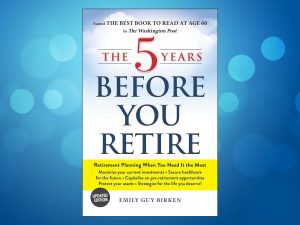By Val Walker
I‘ve written the book I wish I had six years ago, when I found myself isolated after major surgery. On one nightmare of a day, while lying in my hospital bed, groggy, sore and plugged into an IV, I received a text message from my friend that she would not be able to take me home (let alone take care of me for a couple of days). There is nothing worse than being abandoned in a hospital with no family, no friends, and no one to call. This was my wake-up call, and on that very day, I vowed I would write a book about this experience – which was not only lonely and terrifying, but which also shattered my confidence as a “likeable” person.
I felt that I alone was to blame for lacking social support and being isolated in my time of need. My determination to write this book gave me a reason to build community as an advocate for myself and for all the isolated and lonely people I had served as a rehabilitation counselor. After much research, I soon realized that social isolation was a fast-increasing epidemic. Ironically, I found comfort in reading the alarming social science studies that validated the new normal for many others like me who were finding themselves completely isolated. People like me needed a hopeful, friendly and candid guide to breaking out of isolation—so my book developed into a three-way punch: part memoir, part guidebook, and part research report.
Be someone’s strength, be someone’s inspiration,
be someone’s reason to never give up.
-Unknown
Reasons that people find themselves isolated
There are external as well as internal forces that isolate us. With our individualized approach to challenges, we tend to blame ourselves too much for the reasons we are isolated. Certainly, our social anxiety or our past painful experiences can be isolating forces, but so can socio-economic situations that strap us into “survival mode,” a chronic illness, financial limitations, transportation barriers, working too many hours just to get by, being a full-time caregiver, or being single parent without family or a partner. These forces can lock us into isolation.
Why do we stigmatize loneliness?
When we see people who don’t seem to have friends or who lack social support, we tend to think that they must have caused their own lonely predicament. We rush to find reasons and explanations. Maybe they have poor social skills or perhaps they come from an abusive or broken family—or maybe they choose to isolate themselves because they’re loners or misfits. Perhaps they’re mentally ill or just plain weird. In short, we think that there must be something wrong with them or that they made “poor choices” in life. We may even draw on the overblown tropes of loners as social rejects who become dangerous mass shooters or creepy predators. We judge them and we avoid them. But, unfortunately, this judgment can backfire on ourselves when we find ourselves lonely and “unlikable.” And then we doubt ourselves and wonder if there is something defective inside us that has caused our loneliness.
When I finally began to grapple with this stigma about lonely people, I allowed myself to be more compassionate, patient, and gentle with my loneliness. I befriended my loneliness and stopped blaming myself and others for it. It was a huge revelation and I am pleased and relieved to say that the first part of my book takes a close, deep and compassionate look at how this stigma affects us.
Does society further isolate?
Here are common barriers I hear from my clients who struggle with “getting out there” and meeting people:
1. “The traffic is ridiculous, so who wants to fight it just to go out for fun?”
2. “I can’t get a babysitter or a caregiver to help out, so I can’t get out.”
3. “I work three jobs just to put food on the table, so I’m too exhausted to go out.”
4 “I have a chronic illness and this totally eats away my energy, focus, and time.”
5 . “I just don’t have the money for going out—I’m in debt big time, and I have no extra money.”
“Put yourself out there” advice is not helpful
Before we start going out to social meetups or events, we often need a little practice with a supportive person or support group to rebuild our social skills—our conversational skills. During isolating times, our conversational skills become rusty, which means we feel awkward trying to chat and start friendly conversations. Many of us need a safe person or safe place to practice being social again. Take small, comfortable steps with people we feel understand our situations. Sometimes we need a confidante, a therapist, coach, mentor, or a support group to practice with and build our confidence. Or maybe we seek out a friendly, comforting volunteering job where we can casually chat while we pack bags at a food pantry or walk dogs for an animal shelter.
More sensitive to rejection
There is ample research (especially the work of John Cacioppo) that shows how lonely and isolated people are more sensitive to rejection and more likely to give up sooner than others.
Quite frankly, lonely and isolated people have had one too many discouraging experiences with reaching out to others. Why take the risk of being shunned, snubbed, judged, or exploited all over again? Why not just stay home with Netflix, a cold beer, nachos, and my puppy who loves my attention? So, if I’m going to go to all the trouble to put myself through the high stakes of participating at a social event, it had better be the right one, or I give up!
In short, they just don’t have the patience and wherewithal to tolerate the not-so positive experiences.
How can you reach out?
What draws us out of our shells? Being in our element is what helps (not simply hunting for the “right” people or finding our tribe or our long-lost friend). We need to find the right place that feels good to us (a volunteer gig, a class, a walking group). Perhaps we seek out a room full of people who love the same thing (art or music) or a natural setting that attracts people who love what we love—water, forests, mountains. We need to follow our callings, our interests, our curiosity, or anything that is healing for us. Maybe we take a walk with fellow bird lovers or dog lovers, or join a book club full of other quiet, introverted types who love to read. The key is having common interests and values.
Many of us need a safe person or safe place to
practice being social again.
Building a new support network
Here is the hard news: It can take years. Not just one or two, but more. In this era of shallow, instant connections on social media, too many of us want a quick fix. Unfortunately, building relationships with people is a long, unpredictable, messy, and sometimes lonely process. This is why having a support group or therapist—or at least one comforting person on hand to encourage us—is so very important. Dare I declare that breaking out of isolation takes at least one real human being to talk to? That person doesn’t have to be our best friend or a family member or a therapist, but someone who cares and has “been there” before. As a person who has been on both sides of the crisis call hotline, as a lonely person crying for understanding, as well as a counselor, I can assure all readers that we are never completely alone. You just have to make a first step.
Val Walker is a rehabilitation consultant, speaker and contributing blogger for Psychology Today and the Health Story Collaborative. She is the author of 400 Friends and No One To Call.













